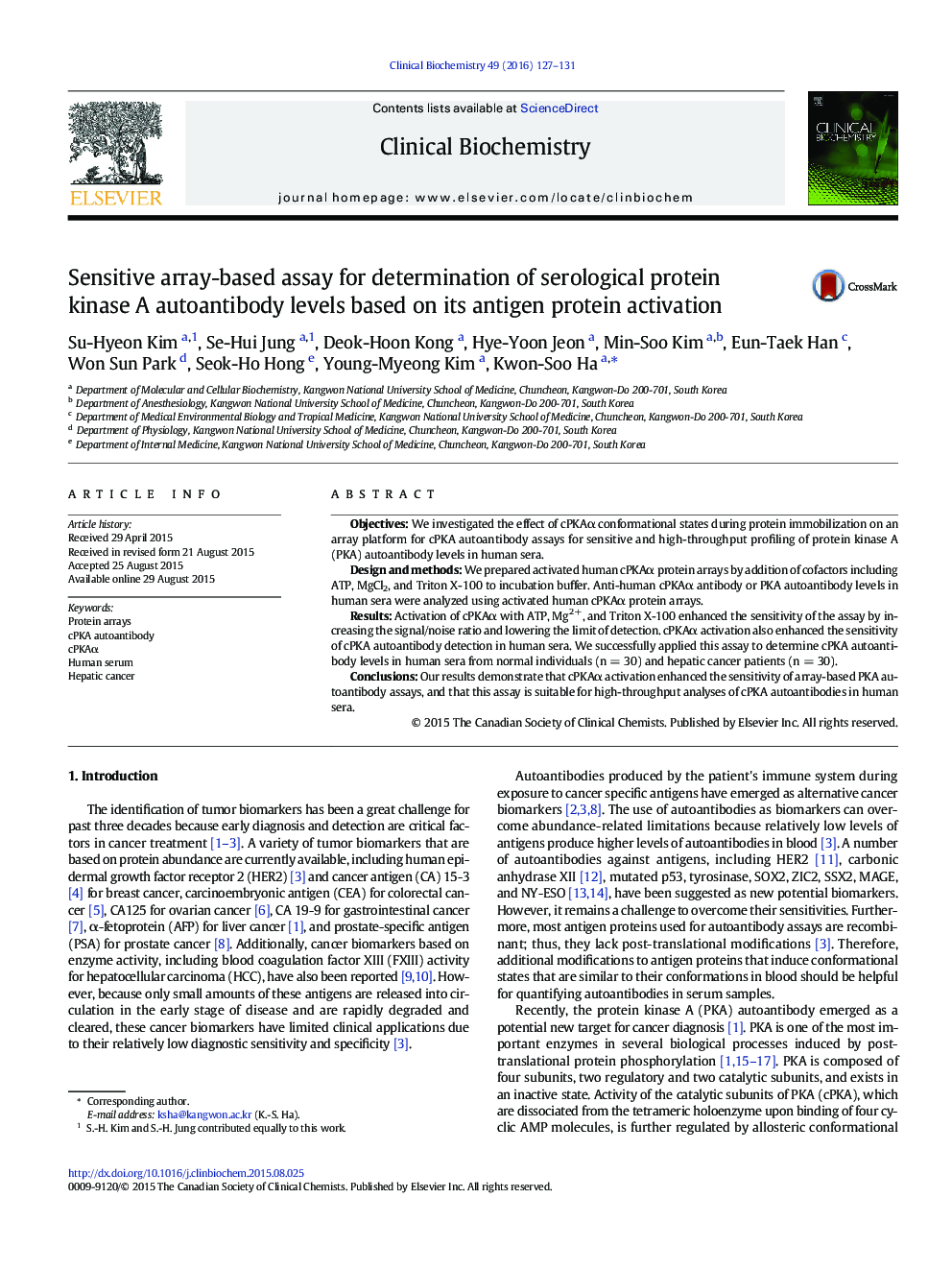| Article ID | Journal | Published Year | Pages | File Type |
|---|---|---|---|---|
| 1968588 | Clinical Biochemistry | 2016 | 5 Pages |
•We present a sensitive and high-throughput assay for analyzing cPKA autoantibody levels in human sera.•Activation of cPKAα its immobilization on the array surface enhanced the sensitivity of the PKA autoantibody assay.•This assay is suitable for high-throughput analyses of cPKA autoantibody levels in human sera.
ObjectivesWe investigated the effect of cPKAα conformational states during protein immobilization on an array platform for cPKA autoantibody assays for sensitive and high-throughput profiling of protein kinase A (PKA) autoantibody levels in human sera.Design and methodsWe prepared activated human cPKAα protein arrays by addition of cofactors including ATP, MgCl2, and Triton X-100 to incubation buffer. Anti-human cPKAα antibody or PKA autoantibody levels in human sera were analyzed using activated human cPKAα protein arrays.ResultsActivation of cPKAα with ATP, Mg2 +, and Triton X-100 enhanced the sensitivity of the assay by increasing the signal/noise ratio and lowering the limit of detection. cPKAα activation also enhanced the sensitivity of cPKA autoantibody detection in human sera. We successfully applied this assay to determine cPKA autoantibody levels in human sera from normal individuals (n = 30) and hepatic cancer patients (n = 30).ConclusionsOur results demonstrate that cPKAα activation enhanced the sensitivity of array-based PKA autoantibody assays, and that this assay is suitable for high-throughput analyses of cPKA autoantibodies in human sera.
Graphical abstractSchematic diagram of on-chip serological cPKA autoantibody assay using cPKAα protein arrays.Figure optionsDownload full-size imageDownload as PowerPoint slide
